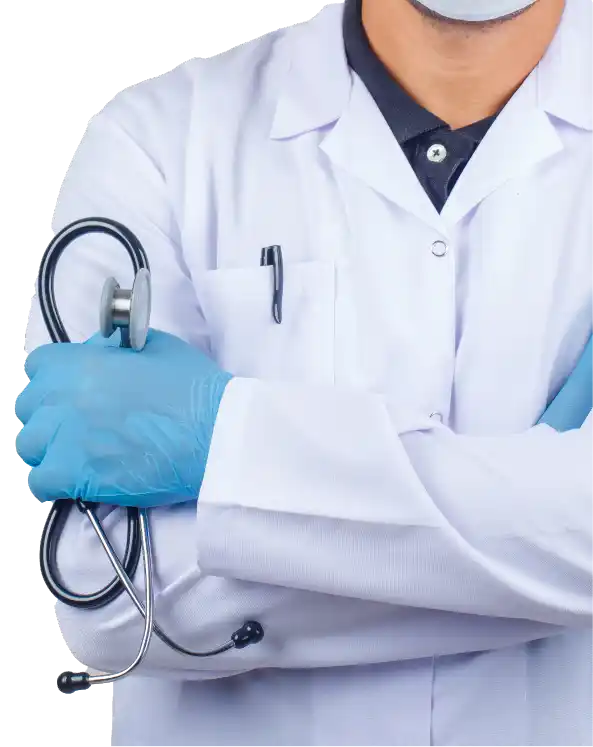Enlarged Prostate: Meaning, Causes, Symptoms, Treatment & Cost
An enlarged prostate refers to the condition when the prostate gland increases in altitude abnormally. In almost all men, the prostate gets enlarged as they grow old. The prostate is a fibromuscular gland positioned near the urethra tube. It is found only in men and plays a crucial role in sexual reproduction. The prostate gland’s major role is to provide a seminal fluid in which sperm bath and can easily flow from its site of production to the outside in the healthy state.

WHAT IS AN ENLARGED PROSTATE?
Enlarged prostate is a men’s problem in which the prostate gland situated in the pelvic region gets bigger than its normal size with age and causes discomfort to men. It is also called prostatic hyperplasia, but the term must not be misinterpreted with prostate cancer. Prostate cancer is a very much different thing than an enlarged prostate.
An enlarged prostate can cause the following problems:
- Urinary bladder problems
- Urinary tract problems
- Kidney problems
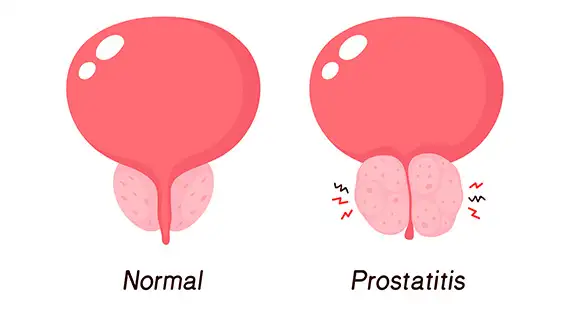
CAUSES
- Hormonal imbalance in men
- Change in testicular cells
SYMPTOMS
- Poor streaming of urine
- Urinary hesitancy
- Problem in initiating urination
- Pain on peeing
- Dribbling during urination
- Prolonged micturition
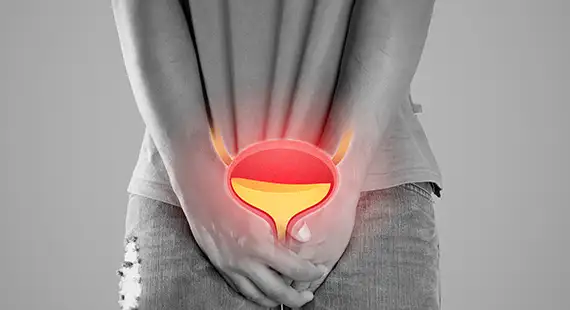
DIAGNOSIS
Blood tests- To check kidney problems
- Urinary flow test
- Digital rectal examination
- Blood test (Prostate-specific antigen)
- Urine residual volume test
- 24-hour voiding exam
For patients with a severe condition, doctors recommend the following:
- Prostate biopsy
- Transrectal ultrasound
- Transabdominal ultrasound
- Urodynamics
- Urethral cystoscopy
DO's
DONT's
TREATMENTS
NON-SURGICAL TREATMENTS

Non-surgical treatment includes the use of drug therapy:
There are several groups of medicines that have helped in relieving the symptoms of an enlarged prostate; these drugs include
- Antimuscarinics
- Alpha-reductase inhibitors
- Alpha-blockers
- Combination drugs- including alpha-reductase inhibitors and blockers
SURGICAL TREATMENTS
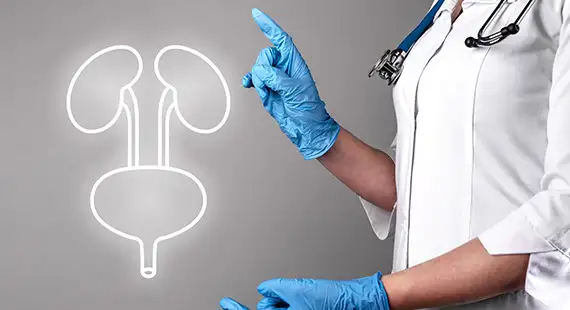
Surgical therapies to get rid of enlarged prostate are:
- TURP involves the excision of some part of the prostate
- TUIP involves putting one or two-minute cuts or incisions on the prostate for essay peeing
- TUMT is microwave-based destruction of inner prostate tissue
- TUNA involves the use of heat to destroy extra prostate cells
Robot-assisted surgery for the removal of part of the prostate gland
Laser surgery for treating the enlarged prostate (also called the holmium laser surgery for prostate )
RISKS AND COMPLICATIONS
Several risk factors are responsible for accelerating the process of prostate enlargement. There can be modifiable and non-modifiable risk factors associated with prostate hyperplasia. These factors include:
Obesity
This metabolic condition leads to high amounts of estrogens and increased inflammation which may point out as the risk factor for developing prostate hyperplasia. However, according to case studies on enlarged prostate patients, it has been observed that the majority of obese men have got enlarged prostates as compared to normal men.
Metabolic syndrome
All conditions or diseases that are related to the metabolism of a person are referred to as metabolic syndromes. These include,
- Insulin resistance
- Glucose intolerance
- High blood pressure- hypertension
- Dyslipidemia
Genetic cause
Prostate hyperplasia runs in families, which means that if your very close relative has an enlarged prostate, then there are more chances that you will inherit prostate hyperplasia.
Men with the above-given problems are at high risk of developing prostate hyperplasia.

IF LEFT UNTREATED
An untreated enlarged prostate can cause various health related issues including:
- Urinary tract problems
- Kidney problems
- Abnormal bladder functioning
- Extreme pain and discomfort in urination
COST
The average cost for treating enlarged prostate completely with the recommended surgical procedure is between ₹60,000 - ₹1,00,000. The cost of the surgical procedure varies on the basis of the severity of the disease condition, the type of hospital, and the city that opted to undergo surgery.
Financial Options
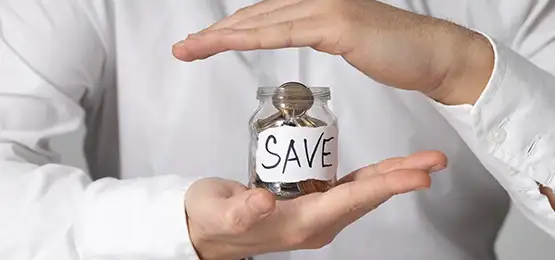
INSURANCE COVERAGE
The surgical treatment for the enlarged prostate is covered under health insurance. Mostly, all the health insurances cover the surgery for treating the enlarged prostate with different insurance policies and funding benefits. Therefore, it is important to get the details for the insurance policies and expense coverage before claiming.
It is important to know that medical treatment for enlarged prostate will not be covered under the insurance policy. It will only cover the cost or expenses of the surgical treatment, but to claim this, you will have to be hospitalized for 24 hours.

Know more about Enlarged Prostate
An enlarged prostate means the prostate gland has grown bigger than normal. The condition mostly affects men as they get older. Various factors linked to ageing and change in testicle size play an important role in the enlargement of the prostate gland.
It is a very common condition, especially in men over 40 years of age. It is advised to see the doctor in case of urinary problems that may complicate the condition leading to obstruction of the urinary tract. There are numerous treatment options available for an enlarged prostate include drugs like Silodosin, surgeries like TURP, and laser treatments. TURP Surgery or Robot-assisted prostatectomy is considered one of the most effective, latest and advanced surgical treatments for enlarged prostate. You can go through successfull patient stories of Glamyo Health, a Healthcare brand dealing in non- invasive elective and aesthetic operations, such as laser proctology, laparoscopic surgery,urology, etc.
The reason behind this gland’s enlargement is the imbalance in hormones that cause loss of homeostasis between cell growth and cell death in the prostate gland tissues. This imbalance results in an abnormally high number of stromal cells and epithelial cells (types of cells present in prostate glands). The increased number of these cells, also called hyperplasia, can be observed in histopathological studies.
 New Delhi
New Delhi  Bangalore
Bangalore  Mumbai
Mumbai  Hyderabad
Hyderabad  Pune
Pune  Chennai
Chennai 